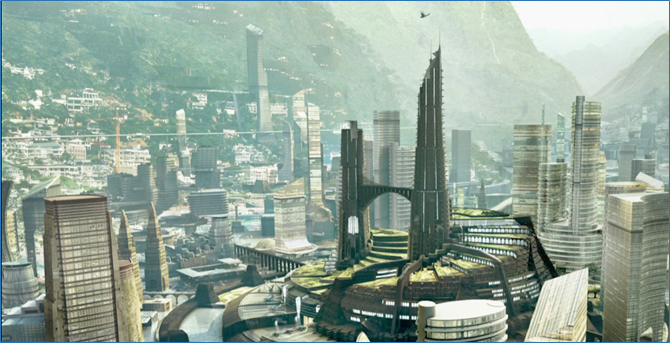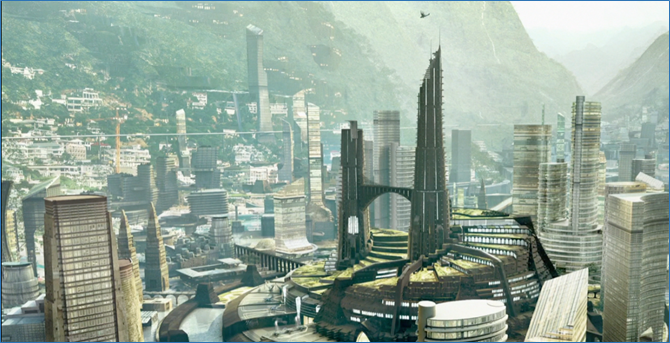I wrote this on Nov 4th 2016, months before Black Panther screened and certainly before I knew about the Erik Killmonger motivation and plotline. That character and plotline are connected to some of the issues below. But the coincidence isn’t exact and there is a lot of areas explore below that are divergent. Read on.

The fictional Wakanda in Marvel’s Black Panther Movie
The last two centuries have been pretty dire for people who are originally from Africa. Starting with colonization, the slave trade and culminating in a systemic global disenfranchisement of people with darker skin in almost every country. People of African heritage has been under concerted derogation and pressure in a way never seen – constantly valued at the bottom of the human endeavor, despite being the cradle and foundation of Homo sapiens. The legacy of not so ancient black civilization (Egypt, Australia, Southern Africa, West Africa) are constantly minimized to fit the narrative of the current ascendant western and eastern civilizations.
This situation has resulted in a lot of general grief and misery in the experience of many people of black heritage, in contemporary times. Beyond existing economic and physical depredations of living at the bottom of society’s value system for human beings, there is the persistent lack of big bold examples of black excellence that reinforces non-black people’s prejudices. To clarify, while there are many individual examples of black inventiveness, resilience and brilliance; there is no equivalent of a times square ad, an undeniable beacon.
These examples are often to be had at the societal or civilization level. For example, the many edifices and contributions of the western civilization are undeniable – from the ushering of the industrial age based on key inventions like the steam engine; to the major cities and the marquee edifices and art in them: Rome, Paris, New York. In equal measure is the recent rise of the eastern cultures, who have in the last 100 years, shrugged off a lesser status from the colonization and exploitation of the West to build their own beacons like Kuala Lumpur, Shanghai, and Tokyo. While cross cultural influences from the West pepper these eastern cities, their art and inflections are entirely home-grown culture.
In the last 5 decades, Arabian cultures have also got into the act of building up their image in the modern times. Even though mighty civilizations flourished in the middle east, under the influence of the British empire, these kingdoms saw decline relative to the west. However many middle eastern countries have invested their new found oil wealth in both their people, but also building city edifices, in the mold of the west, to signal their arrival on the global stage – Dubai, Bahrain, Aman, Cairo.
Overall, every old culture has declined relative to the west in the last century. But they are all signaling a willingness to play on the global stage, to be seen as on an equal footing. And part of that signaling includes building modern cities in modern states that are governed properly. Also building economies that are sustainable.
There is one major exception – no sub-Saharan African country has managed to do the same thing. This lack of signaling from a majority black country helps feed the widespread modern stereotype (outside Africa) of people of African descent as somewhat less contemporary. A very poignant example was recently related by the star author and booker prize winner, Chimamanda Adichie. She had written an essay as an undergrad and signed it with her initials which was ethnically ambiguous. It happened to be the best essay and the professor asked the author to stand up to be recognized and was surprised that it was a black woman who had taken the prize. People of black descent often endure these kinds of interactions; the tragedy of low expectations, daily in what has come to be known as ‘micro aggressions’. And to be clear there also been outright aggressions, like African slavery, like Jim Crow, like the restriction of black wealth growth through redlining, the criminalization of black identity and vices (crack vs powder cocaine), the school to prison pipeline, equating minor civil right protests to being unpatriotic; I could go on.
Lost in antiquity and erased from History, or not given much weight, is the reality of the rule of Egypt by black Pharaohs from Sudan (whose many accomplishments beyond the pyramids include time-telling devices and astronomy); the creation of unique democratic institutions by the Igbo – outside of Grecian traditions; and myriad other accomplishments. Now it’s not the job of other civilizations to lionize African achievements (although minimizing it is a bit shady). Africans themselves have not done a good job insisting that the world knows these things. And it needs to do this in varied ways, including signaling in the ways that other cultures have been doing.
There have been natural nation candidates for this kind of signaling: Nigeria as the most populous and richest black nation, Haiti is the storied island run by black slaves that defeated the might of the French empire. But nothing has really materialized. Haiti now lives poorly in the shadow of North America and has been unable to build a strong country. Nigeria with the largest population of black Africans and with its tribes coming from many ancient kingdoms; after successfully exiting British colonization, has been unable to build a strong country.
This is a tragedy for people of African descent everywhere. There is no place that is a beacon, an identity for blackness. A physical place to put/store black aspirations, attainable or not. A place to wish for, that is not completely unattainable. Instead, most black people are condemned to live as a sub population, where oppression has a higher chance to flourish. Dark skinned people in every continent face higher rates of poverty and disenfranchisement. A world where an unapologetically powerful black country existed would offer hope in a largely hopeless world for people of black descent.
In the Marvel comics universe, there is a fictional black country that on the surface is a backwards African nation. But this is a façade to prevent unjustifiable interference by powerful nations in its affairs. In reality, the country hid the most technologically advanced civilization on the planet, built on the wise use of a meteoric mineral called Vibranium. And protecting that civilization was a quasi-techno religious monarchy of which the king was also the black panther, a contemporary super hero. That country was called Wakanda.
The super hero piece of this is fun but unimportant. The former, the technologically advanced country that has the foresight to not put a target on its back through the centuries, is of the utmost importance. The country that utilized fortune (a mineral that was given by the stars) to build something for itself and for the world. In the comics, Wakanda represented a beacon of hope for blackness. It stored the aspirations of the African continent, but also any black person in the world. It wasn’t perfect, often riven with conflict within and without; not the least of which a monarchy is not the most representative of governments. But it endured because it had a conversation with itself that was not presumed on being lesser or even comparative.
A Wakanda that finally comes into the sunlight, as a way to signal the arrival of Africans on the modern global stage; would be the biggest therapeutic event in human history. Setting free the bruised and wounded souls of many dark-skinned people. This won’t come from fantasy like in the comic books, but from dint of hard work and purpose by Africans. African needs a Wakanda. The world needs Wakanda.
There are no shooting stars in the sky at the moment, but I wish for Wakanda.

